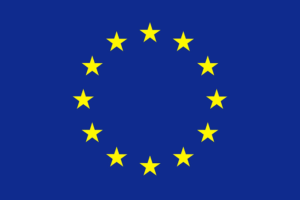crypto currency is evolving rapidly, with privacy points emerging as a significant aspect of this transformation. Privacy in crypto investments refers to the ability to conduct transactions and hold assets anonymously, without revealing personal information. This feature has both positive and negative implications, impacting everything from security and user freedom to regulatory compliance and market stability. In this comprehensive article, we will explore the future of crypto investments with a particular focus on privacy points, examining the benefits and risks associated with this evolving landscape.
The Rise of Privacy Coins
Privacy coins are a subset of cryptocurrencies designed to offer enhanced privacy features. Unlike traditional cryptocurrencies like Bitcoin and Ethereum, privacy coins like Monero, Zcash, and Dash employ advanced cryptographic techniques to obscure transaction details, including the identities of the sender and receiver and the amount being transferred.
Monero (XMR)
Monero is one of the most well-known privacy coins, utilizing ring signatures, stealth addresses, and confidential transactions to ensure complete anonymity. These features make it virtually impossible to trace transactions back to their origin, providing users with unparalleled privacy.
Zcash (ZEC)
Zcash offers users the option to use “shielded” transactions, which leverage zero-knowledge proofs to validate transactions without revealing any details. This provides a balance between transparency and privacy, allowing users to choose their level of anonymity.
Dash (DASH)
Dash offers a feature called PrivateSend, which mixes users’ transactions to obfuscate the origins of funds. This optional feature enhances privacy while maintaining the usability and speed of traditional Dash transactions.
The Promises of Privacy in Crypto Investments
Enhanced Security
One of the primary benefits of privacy in crypto investments is enhanced security. By obscuring transaction details, privacy coins protect users from various threats, including hacking, theft, and surveillance. This added layer of security is particularly valuable in an era where cyberattacks are increasingly sophisticated and prevalent.
Financial Freedom
Privacy coins empower users by providing them with greater control over their financial transactions. This financial freedom is especially important in regions with restrictive governments or unstable economies, where individuals may face limitations on how they can use and transfer their funds.
Protection from Discrimination
Privacy in crypto investments can help protect individuals from discrimination based on their financial activities. By keeping transactions anonymous, privacy coins prevent third parties from accessing sensitive information that could be used to make biased decisions about creditworthiness, employment, or other opportunities.
Decentralization
Privacy coins often align with the broader principles of decentralization that underpin the cryptocurrency movement. By enabling anonymous transactions, privacy coins help maintain the integrity of decentralized networks, reducing the risk of centralization and censorship.
The Pitfalls of Privacy in Crypto Investments
Regulatory Challenges
One of the most significant challenges facing privacy coins is regulatory scrutiny. Governments around the world are increasingly concerned about the potential for privacy coins to facilitate illegal activities, such as money laundering, tax evasion, and terrorist financing. As a result, regulatory agencies may impose restrictions or bans on privacy coins, limiting their use and adoption.
Market Volatility
Privacy coins can be more volatile than traditional cryptocurrencies due to their niche market and the regulatory uncertainties surrounding them. This increased volatility can pose risks for investors, who may face significant losses if the value of their investments fluctuates rapidly.
Limited Adoption
While privacy coins offer valuable features, their adoption is still relatively limited compared to mainstream cryptocurrencies like Bitcoin and Ethereum. This limited adoption can impact the liquidity and usability of privacy coins, making it more challenging for investors to buy, sell, and use them in everyday transactions.
Technological Complexity
Privacy coins often rely on advanced cryptographic techniques, which can be complex and difficult for the average user to understand. This technological complexity can create barriers to entry, limiting the accessibility and usability of privacy coins for a broader audience.
The Regulatory Landscape
United States
In the United States, regulatory agencies such as the Securities and Exchange Commission (SEC) and the Financial Crimes Enforcement Network (FinCEN) have expressed concerns about the use of privacy coins for illegal activities. These agencies are working to develop regulatory frameworks that balance the need for privacy with the need for oversight and compliance.

European Union
The European Union has also taken steps to regulate the use of privacy coins. The Fifth Anti-Money Laundering Directive (5AMLD), which came into effect in 2020, requires cryptocurrency exchanges and wallet providers to implement Know Your Customer (KYC) and Anti-Money Laundering (AML) procedures. These regulations aim to enhance transparency and prevent the misuse of privacy coins for illegal purposes.

Asia
In Asia, countries like Japan and South Korea have imposed strict regulations on the use of privacy coins. In 2018, Japan’s Financial Services Agency (FSA) banned cryptocurrency exchanges from listing privacy coins, citing concerns about their potential use in money laundering and other illegal activities. South Korea has implemented similar measures, requiring exchanges to delist privacy coins and comply with stringent KYC and AML regulations.

Technological Innovations
Zero-Knowledge Proofs
Zero-knowledge proofs (ZKPs) are a cryptographic technique that allows one party to prove the validity of a statement without revealing any additional information. ZKPs are used in privacy coins like Zcash to validate transactions without disclosing details about the sender, receiver, or amount. This technology has the potential to revolutionize the field of privacy in crypto investments by providing a high level of security and anonymity.
Ring Signatures
Ring signatures are another cryptographic technique used in privacy coins like Monero. They allow a group of users to sign a transaction, making it impossible to determine which user actually created the signature. This ensures that the identities of both the sender and receiver remain anonymous, enhancing privacy and security.
Confidential Transactions
Confidential transactions are used in privacy coins to obscure the amount being transferred. This technique ensures that transaction details remain private, preventing third parties from accessing sensitive financial information. By combining confidential transactions with other privacy-enhancing technologies, privacy coins can provide a comprehensive solution for secure and anonymous transactions.
The Future of Privacy Points in Crypto Investments
Increased Adoption
As awareness of privacy coins grows and technological innovations continue to enhance their features, it is likely that adoption will increase. Privacy coins offer unique benefits that appeal to a wide range of users, from individual investors seeking financial freedom to businesses looking to protect sensitive transaction details. Increased adoption could lead to greater liquidity and usability, making privacy coins a more viable option for everyday transactions.
Integration with Mainstream Financial Systems
One potential future development is the integration of privacy coins with mainstream financial systems. This could involve partnerships between privacy coin projects and traditional financial institutions, enabling users to seamlessly convert between privacy coins and fiat currencies. Such integration could enhance the accessibility and usability of privacy coins, driving further adoption.
Regulatory Harmonization
As governments and regulatory agencies around the world develop clearer frameworks for cryptocurrency regulation, it is possible that a more harmonized approach to privacy coins will emerge. This could involve the implementation of standardized KYC and AML procedures, allowing privacy coins to coexist with regulatory requirements while maintaining their core privacy features. Regulatory harmonization could reduce uncertainty and foster greater trust in privacy coins, encouraging more widespread adoption.
Enhanced Security Measures
The ongoing development of advanced cryptographic techniques and privacy-enhancing technologies will likely continue to improve the security and anonymity of privacy coins. As these technologies evolve, privacy coins will become more robust and resilient to threats, further enhancing their appeal to investors and users. Enhanced security measures will be crucial in addressing regulatory concerns and building confidence in the privacy coin market.
Ethical Considerations
The future of privacy points in crypto investments will also involve addressing ethical considerations. While privacy coins offer significant benefits, they can also be used for illegal activities. Striking a balance between privacy and compliance will be essential to ensure that privacy coins are used responsibly and ethically. This may involve the development of self-regulatory frameworks within the cryptocurrency industry, promoting best practices and responsible use.
Case Studies: Privacy Coins in Action
Monero and the Dark Web
Monero’s advanced privacy features have made it a popular choice for transactions on the dark web. While this has raised concerns about its use for illegal activities, it also demonstrates the effectiveness of Monero’s privacy technology. Efforts to address these concerns through regulatory measures and industry collaboration will be crucial in shaping the future of Monero and other privacy coins.
Zcash and Regulatory Compliance
Zcash’s approach to privacy, which includes the option for shielded transactions, has allowed it to navigate regulatory challenges more effectively. By providing users with the choice between transparent and shielded transactions, Zcash balances privacy with compliance, offering a model for other privacy coins to follow.
Dash and Mainstream Adoption
Dash’s PrivateSend feature provides enhanced privacy while maintaining the speed and usability of traditional Dash transactions. This balance has helped Dash gain traction among mainstream users, demonstrating the potential for privacy coins to achieve broader adoption. Dash’s success highlights the importance of usability and accessibility in driving the adoption of privacy coins.
Strategic Recommendations for Investors
Diversification
Investors considering privacy coins should diversify their portfolios to mitigate risk. This can involve investing in a mix of privacy coins and traditional cryptocurrencies, as well as other asset classes. Diversification helps spread risk and can enhance the overall stability of an investment portfolio.
Staying Informed
The regulatory landscape for privacy coins is constantly evolving. Investors should stay informed about regulatory developments and understand how they may impact the privacy coin market. Keeping abreast of technological advancements and industry trends will also help investors make informed decisions.
Risk Management
Investing in privacy coins carries inherent risks, including regulatory uncertainty and market volatility. Implementing robust risk management strategies, such as setting stop-loss orders and maintaining a diversified portfolio, can help investors navigate these challenges. Risk management is crucial in protecting investments and ensuring long-term success in the crypto market.
Ethical Considerations
Investors should consider the ethical implications of their investments in privacy coins. While privacy is a fundamental right, it is important to ensure that investments are not inadvertently supporting illegal activities. Conducting thorough research and choosing projects that align with ethical principles can help investors make responsible investment decisions.
Conclusion
The future of crypto investments is closely tied to the evolution of privacy points. Privacy coins offer significant benefits, including enhanced security, financial freedom, and protection from discrimination. However, they also face challenges, including regulatory scrutiny, market volatility, and limited adoption. By navigating these challenges and leveraging the potential of privacy-enhancing technologies, the cryptocurrency industry can unlock new opportunities and drive the future of crypto investments.
As governments and regulatory agencies develop clearer frameworks, and as technological innovations continue to enhance privacy features, privacy coins are likely to see increased adoption and integration with mainstream financial systems. This will require a balanced approach that addresses regulatory concerns while preserving the core principles of privacy and decentralization.
Investors in privacy coins must stay informed, manage risks effectively, and consider the ethical implications of their investments. By doing so, they can navigate the complexities of the privacy coin market and capitalize on the opportunities it presents.
In conclusion, privacy points represent a promising yet challenging aspect of the future of crypto investments. With careful planning, strategic foresight, and a commitment to ethical principles, the cryptocurrency industry can harness the power of privacy to drive innovation, protect user rights, and create a more secure and inclusive financial system. The journey towards this future will require collaboration, transparency, and a willingness to adapt to the evolving landscape of digital finance. By embracing these principles, the cryptocurrency community can ensure that privacy points play a pivotal role in shaping the future of crypto investments, offering both promise and potential pitfalls along the way.
For more information, visit
https://www.investopedia.com/terms/c/cryptocurrency.asp
https://www.forbes.com/advisor/in/investing/cryptocurrency/advantages-of-cryptocurrency/
You may also like
Digital Gold: The Future of Cryptocurrency
Revolutionizing Finance: Taking the Quantum Leap

